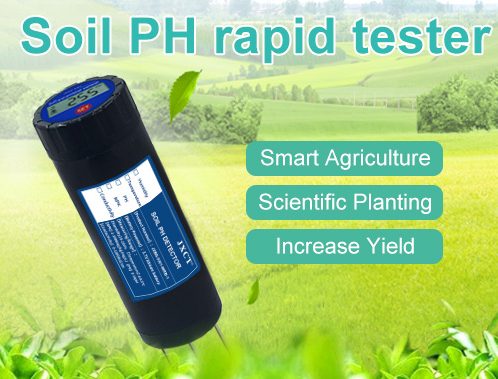Soil pH sensors Introduction
Soil pH sensor play a crucial role in modern agriculture, providing farmers with valuable insights into the acidity or alkalinity of their soil. With the integration of IoT (Internet of Things) technology, these sensors have become even more powerful and versatile, offering real-time data collection and analysis for precision agriculture.

Role of soil pH sensors
IoT-enabled soil pH sensor are with advanced technology that allows for continuous monitoring of soil pH levels. These sensors are connected to a network, enabling farmers to access real-time data remotely via a smartphone or computer. This real-time information provides valuable insights into the soil conditions, allowing farmers to make informed decisions about soil amendments, crop selection, and other agronomic practices.
One of the key benefits of IoT-enabled soil pH sensors is their ability to optimize soil management. By monitoring soil pH levels continuously, farmers can ensure that their soil is within the optimal pH range for their crops. This can help to maximize nutrient availability, improve nutrient uptake by plants, and ultimately enhance crop yields.

Moreover, IoT technology allows for the integration of additional environmental data and predictive analytics, further enhancing the capabilities of soil pH sensors. By combining soil pH data with weather forecasts, farmers can anticipate changes in soil pH levels and adjust their soil management strategies accordingly. This proactive approach can help mitigate the impact of environmental factors on soil pH, ensuring optimal growing conditions for crops.
In addition to soil management, IoT-enabled soil pH sensors offer insights into soil health and fertility. By analyzing the data collected from these devices, farmers can assess the nutrient levels, cation exchange capacity, and other soil properties, enabling them to tailor their soil management strategies to the specific needs of their crops.
Furthermore, the data collected by IoT-enabled soil pH sensors can be integrated with other farm management systems, such as precision fertilization systems, crop monitoring platforms, and yield mapping software. This seamless integration allows for a holistic approach to farm management, enabling farmers to optimize their operations and maximize productivity.
Overall, IoT-enabled soil pH sensors represent a significant advancement in agricultural technology, offering farmers unprecedented visibility and control over their soil conditions. By harnessing the power of IoT, these devices are transforming the way farmers manage their fields, leading to more sustainable and efficient agricultural practices.
Conclusion
In conclusion, IoT technology has revolutionized the capabilities of soil pH sensors, enabling farmers to make data-driven decisions that optimize soil pH, improve soil health, and enhance overall crop productivity. As the agricultural industry continues to embrace IoT solutions, the potential for innovation and sustainable farming practices is boundless.